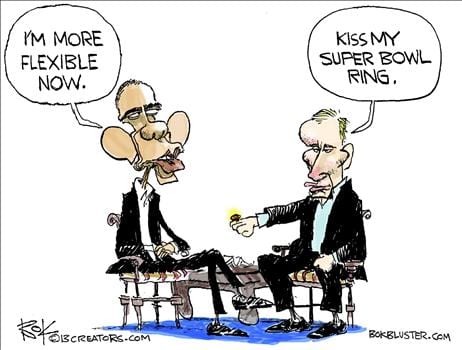
Russia’s Foreign Policy: A Bold Quest for Power
Oct 11,2203
Introduction
The demise of the Soviet Union marked a seismic shift in Russia’s global strategy. The transition from a communist stronghold to a reborn nation triggered profound alterations in how it engaged with the world. In a smaller territory primarily inhabited by ethnic Russians, Russia embarked on a mission to redefine its place on the world stage. Guided by Vladimir Putin’s iron hand, which has ruled for two decades, the nation’s foreign policy has revolved around preserving unity and reclaiming its status as a significant global player.
Yet, the pursuit of these ambitions has come at a cost. The concentration of power and the authoritarian roots of the political regime have ignited concerns about exploiting the nation’s resources by a select few. As Russian citizens awaken to political realities, the current administration may face future challenges. Moreover, Russia’s resurgence as a global heavyweight has rekindled a contentious relationship with the United States, setting the stage for a prolonged and intricate power struggle.
In this article, we plunge into the complexities of Russia’s foreign policy, delving into its unwavering determination and calculated approach. We scrutinize the fallout of the Soviet Union’s collapse and its influence on modern Russia’s international stance. Additionally, we assess the centralization of power and the potential ripple effects on the nation’s destiny. Furthermore, we dissect the renewed clash with the United States and the nuances of this enduring and asymmetrical contest.
Join us on a journey through the intricate realm of Russia’s foreign policy, unravelling its motivations, adversities, and ramifications. From decisive actions in the tumultuous Ukrainian region to the intricacies of Russia’s dealings with Western powers, we explore the persistent and systematic approach that defines Russia’s foreign policy under Putin’s rule.
Russia’s Foreign Policy: A Resolute and Disciplined Approach
Russia’s Foreign Policy: The Ukraine War
In the annals of Russia’s recent foreign policy, few events have left as indelible a mark as the outbreak of the war in Ukraine. This cataclysmic conflict is a defining moment that has shaped Russia’s assertive approach and ignited geopolitical tensions reminiscent of the Cold War era. Under the committed leadership of Vladimir Putin, Russia has embarked on a relentless mission to restore its influence and challenge Western hegemony, employing a calculated blend of leveraging global resources, manipulating collaborations with Western countries, and countering the expansion of NATO and the European Union.
Since 2012, Putin has been orchestrating a calculated symphony of power, actively seeking to expand Russia’s presence and influence across strategic regions such as the Middle East, Central Asia, Eastern Europe, the Caucasus, and Africa. However, the war in Ukraine has emerged as a critical turning point, significantly reshaping Moscow’s relations and interests in the region. As the conflict intensifies, it not only strains Russia’s relations with the West but also sets the stage for a dramatic clash of geopolitical titans.
In this tumultuous landscape, where assertiveness and strategic manoeuvring take center stage, uncertainties loom large. The confrontation with the West, marked by economic sanctions and escalating tensions, presents formidable challenges to Russia’s ambitions. The economic decline resulting from falling oil prices and the weight of Western restrictions further test the resilience of Russia’s assertive foreign policy. Moreover, whispers of discontent among the Russian populace and growing demands for political reform add an intriguing layer of complexity to the unfolding narrative.
Within the broader context of Russia’s foreign policy, the Ukraine war serves as a dramatic subtopic that encapsulates Moscow’s persistent and disciplined approach. It is a testament to Putin’s unwavering pursuit of Russia’s national interests and his vision to restore its global prominence. As the conflict continues to unfold, the world watches with a mix of anticipation, trepidation, and a keen eye for the dramatic, witnessing a high-stakes power play that holds the potential to reshape the geopolitical landscape.
Russia’s Bold Moves: Challenging Western Hegemony on the Global Stage
Russia has employed various specific actions to challenge Western hegemony and assert its influence on the global stage. Some notable examples include:
1. Annexation of Crimea: One of the most significant actions taken by Russia was the annexation of Crimea in 2014. Following the political unrest in Ukraine, Russia swiftly moved to assert control over the Crimean Peninsula, a region with historical and strategic significance. This move not only defied international norms and territorial integrity but also sent a clear message that Russia was willing to challenge the established order.
2. Support for Separatist Movements: Russia has been accused of supporting separatist movements in Eastern Ukraine, providing military and logistical support to groups seeking to break away from the Ukrainian government. This support has fueled the conflict in the region and exacerbated tensions between Russia and the West.
3. Military Intervention in Syria: Russia’s military intervention in Syria in 2015 significantly departed from its traditionally cautious approach to foreign military engagements. By supporting the regime of President Bashar al-Assad, Russia aimed to protect its strategic interests in the region, project power beyond its borders, and challenge Western influence in the Middle East.
4. Disinformation and Cyber Operations: Russia has been accused of engaging in disinformation campaigns and cyber operations to influence Western democracies. These actions undermine trust in Western institutions, sow discord among populations, and manipulate public opinion to Russia’s advantage.
5. Energy Dominance: Russia’s energy resources, particularly its vast reserves of natural gas, have been leveraged as a tool to challenge Western hegemony. By controlling energy supplies and pipelines, Russia can exert influence over European countries, potentially using energy as a geopolitical weapon.
6. Opposition to NATO Expansion: Russia has vehemently opposed the expansion of NATO, particularly into former Soviet territories. The enlargement of the alliance is seen as a direct challenge to Russian influence in its perceived sphere of influence, leading Russia to take action to counter NATO’s encroachment.
These specific actions collectively reflect Russia’s assertive approach to challenging Western hegemony. By pursuing these strategies, Russia aims to assert its interests, safeguard its perceived sphere of influence, and counterbalance Western dominance in global affairs.
Challenging the West: A New Cold War?
1. The Ukraine Conflict: A Battlefield of Geopolitical Rivalry
Enter the battleground of the Ukraine conflict, where the echoes of a new Cold War reverberate with intensity. Witness the clash of titans as Russia challenges the West, defying the norms of a bygone era. Amidst geopolitical intrigue and power plays, the stakes soar to dizzying heights. Brace yourself for a gripping saga of ambition, defiance, and the relentless pursuit of influence.
In a dramatic twist, Russia’s audacious annexation of Crimea sets the stage for a high-stakes showdown. As tensions escalate, the West responds with sanctions, but Russia stands firm, unyielding in its quest for power. The conflict becomes a cauldron of geopolitical rivalry, where alliances are tested, and the world holds its breath, caught in the grip of a new Cold War.
2. Russia vs. the West: A Battle for Supremacy
Behold the clash of giants as Russia squares off against the West, forging a path of challenge and opposition. This is not a mere ideological tussle but a battle for supremacy in a complex geopolitical landscape. Unleashing a calculated blend of cunning maneuvers and audacious defiance, Russia under Putin’s leadership refuses to bow to Western pressure.
As the Ukraine conflict unfolds, the drama reaches a fever pitch. The annexation of Crimea sends shockwaves through the international community, igniting a powder keg of tensions. Witness the titanic struggle as Russia, facing economic challenges and sanctions, stands tall against the economic and military might of the United States. It’s a battle where the rules of engagement are rewritten, and the outcome will shape the global order for years to come.
3. Defiance and Ambition: Russia’s Unyielding Pursuit
In a world where power dynamics are ever-shifting, Russia emerges as a formidable challenger to Western hegemony. Led by the resolute Putin, Russia’s ambitions know no bounds. Witness the breathtaking audacity as Russia challenges the West, defying the norms of the past and ushering in a new era of geopolitical confrontation.
The Ukraine conflict becomes the stage for this gripping saga. Russia’s annexation of Crimea shocks the world, and the subsequent Western sanctions only fuel the fire of defiance. Against all odds, Russia holds steadfast, embracing economic challenges and standing tall in the face of Western might. Experience the thrill of a power struggle where the pursuit of influence and restoration of great-power status drive Russia’s unyielding actions.
In this tumultuous landscape, the battle lines are drawn, alliances are tested, and the world braces for the dramatic twists and turns ahead. Will Russia’s audacity pay off, or will the West assert its dominance? Only time will reveal the outcome of this gripping saga of ambition, defiance, and the unyielding pursuit of power.
The Global Ripple Effects: Unpacking Russia’s Foreign Policy in the Ukraine Conflict
The Ukraine conflict has far-reaching consequences on the global stage, influencing various aspects of international relations. Some potential effects include:
1. Strained Relations between Russia and the West: The conflict has significantly strained relations between Russia and Western countries, leading to the imposition of sanctions, diplomatic tensions, and a deepening sense of mistrust. This strained relationship has broader implications for global cooperation, including security, trade, and diplomacy.
2. Geopolitical Realignment: The conflict has triggered geopolitical realignments, with countries reevaluating their alliances and recalibrating their positions. Eastern European countries, particularly those near Russia, have become more wary of Russian aggression, leading to increased support for NATO and a desire for stronger ties with the West.
3. Energy Security Concerns: Ukraine is a crucial transit country for natural gas supplies from Russia to Europe. The conflict has raised concerns about energy security, prompting European countries to explore diversification of energy sources and routes to reduce dependence on Russian gas. This has implications for global energy markets and the balance of power in the energy sector.
4. Humanitarian Crisis and Refugee Flows: The conflict has resulted in a humanitarian crisis, with significant civilian casualties, internal displacement, and cross-border refugee flows. This has burdened neighbouring countries and has broader implications for regional stability and international efforts to address refugee crises.
5. Impact on International Law and Norms: Russia’s annexation of Crimea challenged the post-World War II international order based on respect for territorial integrity and sovereignty. This has raised concerns regarding the erosion of international norms and the potential precedent it sets for future territorial disputes.
6. Cybersecurity and Information Warfare: The conflict has highlighted the role of cyber warfare and disinformation campaigns in modern conflicts. Russia and Ukraine have been engaged in cyberattacks and information warfare, leading to concerns about critical infrastructure security, election interference, and manipulation of public opinion.
7. Economic Consequences: The conflict and subsequent sanctions have had economic repercussions, impacting trade, investment, and economic stability in the region. Russia and Ukraine have faced financial challenges, while Western countries have had to navigate the complexities of balancing economic interests with geopolitical considerations.
These consequences demonstrate the wide-ranging impact of the Ukraine conflict on the global stage, touching upon areas such as geopolitics, security, energy, humanitarian issues, international law, cybersecurity, and the economy. The conflict’s ramifications continue to shape global dynamics and will likely have long-term regional stability and international relations implications.
Limits to Russia’s Influence
Russia’s influence on the global stage faces inherent limitations. While the country’s assertive foreign policy has garnered significant attention, it is crucial to consider the impact of various factors that curtail its reach and power.
First and foremost, Russia’s economic fortunes have experienced a downturn due to the decline in oil prices and the imposition of Western sanctions. These financial challenges have weakened Russia’s position and hindered its capacity to exert influence globally. In contrast, the United States and its allies possess robust economic and military capabilities surpassing Russia’s. This power asymmetry significantly constrains Russia’s ability to project its authority and sway international affairs.
Beyond economic factors, Russia’s political regime also presents potential hurdles to its long-term influence. The current system is characterized by the concentration of power and an authoritarian foundation. While this has allowed for centralized decision-making, it may also spark discontent among the populace. As civil consciousness grows within Russian society, there is a distinct possibility of increased demands for political reform and greater accountability from the ruling elite. Such internal dynamics can reshape Russia’s foreign policy trajectory, as the government may find itself compelled to address domestic concerns and adapt its approach to maintaining stability.
In conclusion, while Russia remains an influential player in global affairs, its capabilities and reach are inherently limited. Economic challenges and the predominance of the United States and its allies restrict Russia’s power projection. Moreover, the potential for internal political changes adds an additional layer of complexity to Russia’s ability to shape foreign policy. Understanding these constraints provides a nuanced perspective on Russia’s influence and its implications for the international community.
Russia’s Ukraine Gambit: A Complex Dance of Power, Partnership, and Influence Across Continents
Russia’s involvement in the Ukraine war has had a complex impact on its standing and economic power, particularly in its relationships with China, Asia, Africa, and several South American countries. While the conflict has presented challenges for Russia, it has also provided specific opportunities for strategic alliances and economic cooperation.
Regarding Russia’s relationship with China, the Ukraine war has strengthened their existing partnership. Both countries share a common interest in countering Western influence, and the conflict has further solidified their alignment. China has supported Russia’s actions in Ukraine, refraining from criticizing or imposing sanctions, which has bolstered Russia’s international position. This alignment has paved the way for increased economic cooperation, including energy deals and infrastructure projects, enhancing Russia’s regional economic power.
In Asia, the Ukraine war has had a more nuanced impact. While some countries have expressed concerns about Russia’s actions, others have taken a more pragmatic approach. Some nations in Asia, particularly those seeking to diversify their alliances and reduce dependence on the West, have shown a willingness to engage with Russia. This has opened doors for economic partnerships and investment opportunities, contributing to Russia’s economic growth and regional influence.
In Africa, Russia’s involvement in the Ukraine war has offered an opportunity to strengthen ties and forge new partnerships. Russia has actively engaged with African nations, offering military support, investment, and development assistance. By leveraging its role in the Ukraine conflict, Russia has aimed to expand its influence in Africa, particularly in areas where Western powers have traditionally held sway. This has allowed Russia to enhance its economic presence and establish strategic alliances across the continent.
Similarly, in South America, the Ukraine war has allowed Russia to deepen its ties. By positioning itself as an alternative partner to the United States, Russia has sought to foster closer economic and political relations with countries in the region. This has included energy cooperation, arms sales, and investment initiatives, all of which have contributed to Russia’s growing economic power and influence in South America.
In conclusion, while the Ukraine war has presented challenges for Russia, it has also provided opportunities to strengthen its standing and economic power. The conflict has deepened Russia’s alignment with China and opened doors for enhanced economic cooperation in Asia, Africa, and South America. By leveraging its role in the conflict, Russia has expanded its influence and forged strategic alliances, contributing to its economic growth and international presence in these regions.
Future Prospects and Conclusion
Russia’s foreign policy under the leadership of Putin has exhibited a distinctive blend of assertiveness and strategic calculation. Russia has pursued a disciplined approach to international affairs driven by a desire to reclaim its great-power status. However, despite its ambitions, there are inherent limitations to Russia’s influence on the global stage when compared to the United States.
The economic challenges stemming from falling oil prices and Western sanctions have significantly weakened Russia’s position. These factors and the formidable economic and military might of the United States and its allies constrain Russia’s ability to project power and shape global dynamics.
Furthermore, the political landscape within Russia itself poses potential hurdles. The centralized and authoritarian nature of the regime may face growing pressure from a populace increasingly aware of civil rights and political reforms. The demands for greater accountability and transparency from the ruling elite could influence Russia’s foreign policy trajectory in the long run.
While it is challenging to predict the future course of Russia’s foreign policy, certain factors will undoubtedly shape its approach. The evolving geopolitical landscape and the interplay of internal dynamics within Russia will play pivotal roles in determining the country’s direction on the international stage.
In conclusion, Russia’s foreign policy, driven by Putin’s leadership, exhibits assertiveness and discipline. However, its influence remains limited compared to the United States, primarily due to economic challenges and political constraints. The future of Russia’s foreign policy is uncertain as it grapples with the complexities of the changing global order and the potential for internal shifts. Understanding these factors is essential for comprehending Russia’s role in international affairs and its potential implications for the wider world.
Additional Compelling Stories of Interest

Financial Freedom Reverse Mortgage: A Sophisticated Strategy for a Comfortable Retirement

Early Retirement Extreme: A Philosophical and Practical Guide to Financial Independence

Student Loan Refinance: A Smart Move Towards Financial Freedom – Poise in Debt Reduction”

How to Lose Money: The Dangers of Ignoring Market Trends and Psychology in Stock Investing

How much has the stock market gone up in 2023? -A Refined Analysis

How to Achieve Financial Goals: The Midas Touch for Your Financial Dreams

Sophisticated Strategies for US Dollar Index Investing: Elevate Your Forex Game

How much has the stock market dropped in 2023?

Visionary Views: How to Achieve Financial Freedom Before 40

A Major Problem with ESOPs is That Employees Can Lose Big

The Sophisticated Guide to Cryptocurrency Investing for Dummies PDF

Considering the Impact of Inflation, Why Is Investing Important for Long-Term Financial Stability?

What the NASDAQ Composite is Trading at in Today’s Market

What Is Contrarian Investing Unleashing Creative Perspectives



